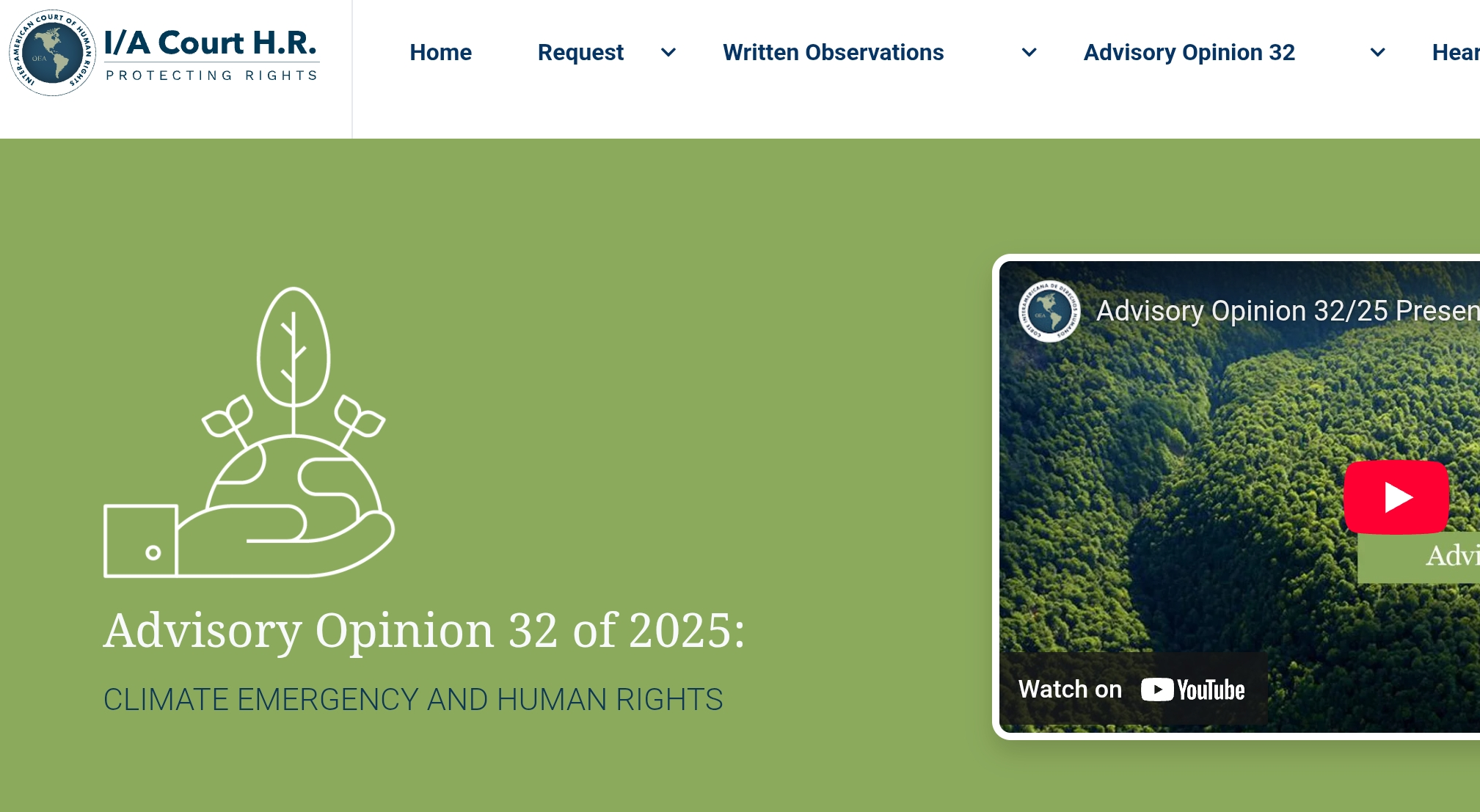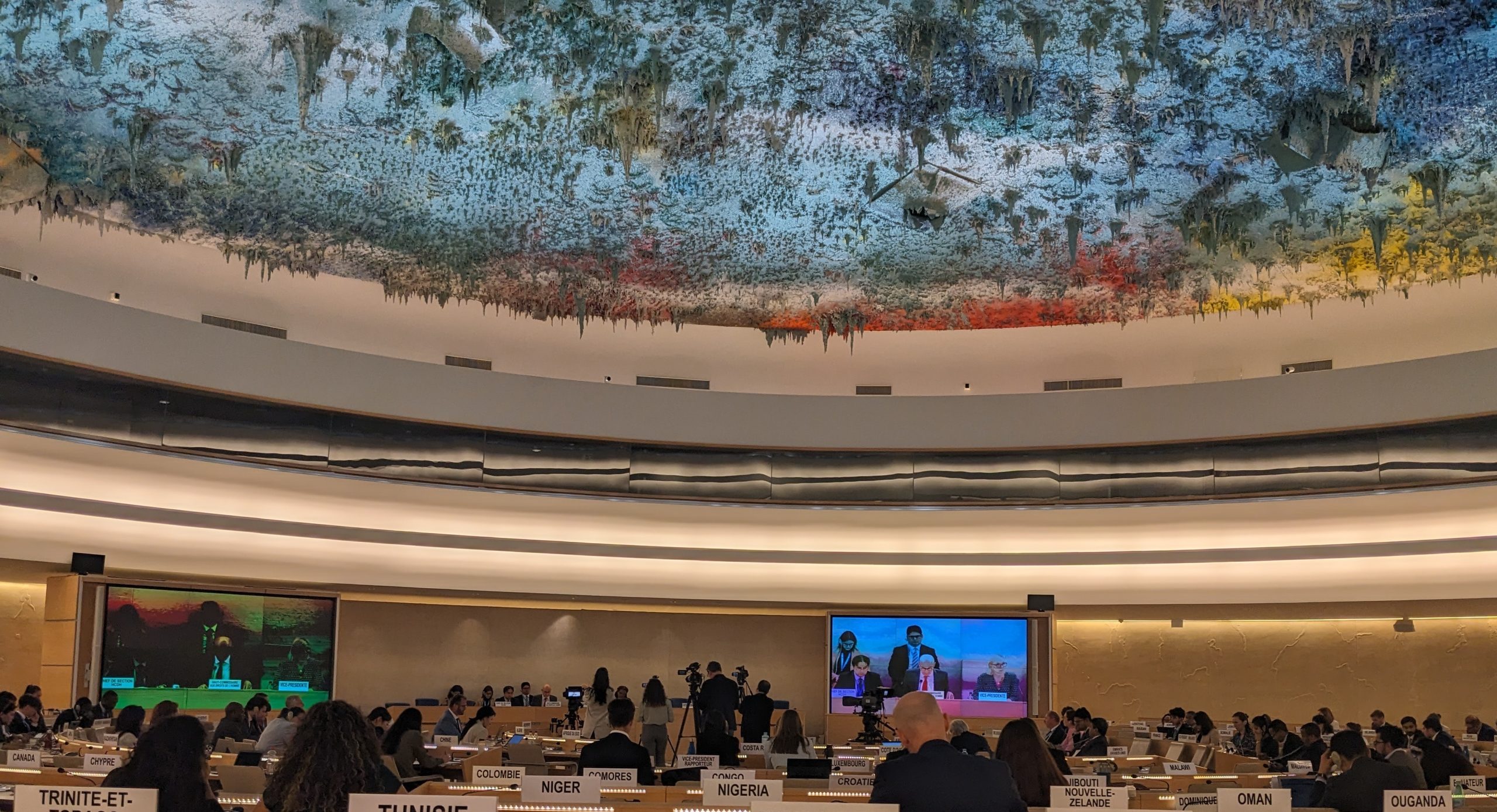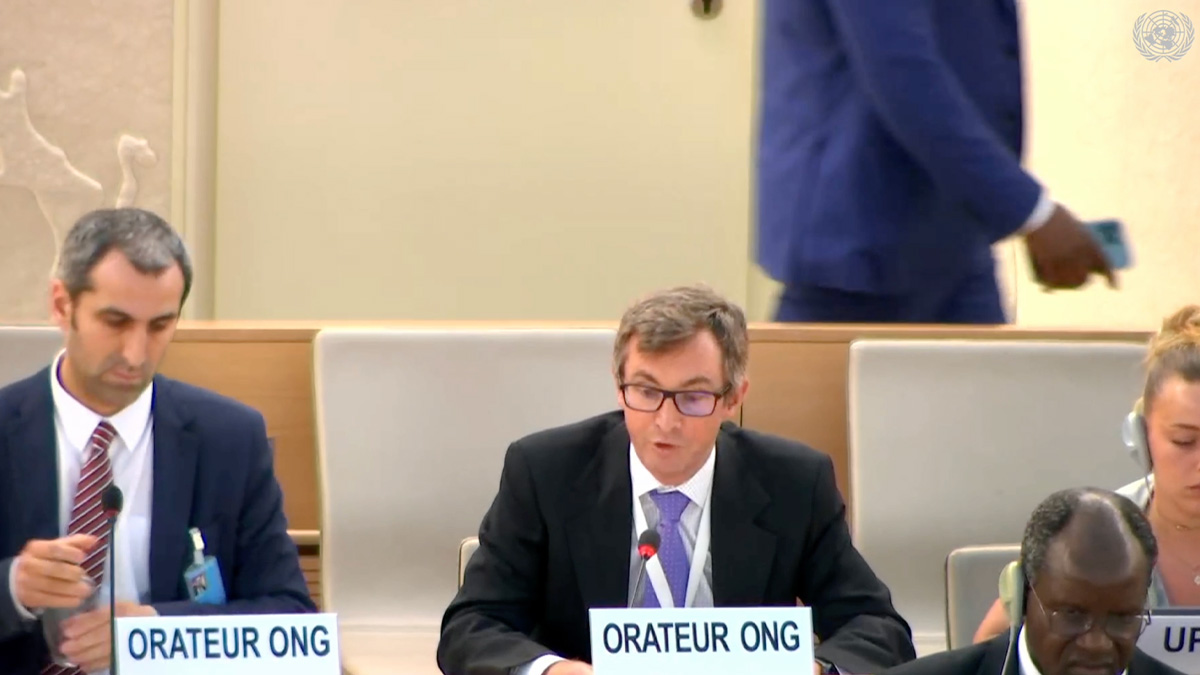Speaking to States at the Human Rights Council, High Commissioner Volker Türk provided an update on the human rights situation in Venezuela, presenting his Office’s (OHCHR) report on the country.
This report called for ‘the urgent preservation and protection of civic space’, while the Venezuelan Ambassador verbally attacked civil society representatives due to also speak. This prompted the Vice President to remind the Council that reprisals are wholly unacceptable and that civil society has a right to speak freely.
In his address to States, Volker Türk said he had hopes for the return of his office to work in Venezuela following the suspension of its operations by the Maduro government. The Venezuelan Ambassador responded that the contents of the report, which he much criticised, made that return difficult.
‘The report included a reference to the enforced disappearance of Rocio San Miguel, a mention that – supposedly – was the fillip for the suspension of operations,’ said ISHR Programme Director Eleanor Openshaw. ‘This is a sign, perhaps, that the Office will not be cowed as it seeks a means to return.’
This session also marked the last occasion for Human Rights Council Member States to hear a direct update on Venezuela and to hold its government accountable for widely reported abuses, ahead of the 28 July presidential elections.
Brazil took the floor to call for the full implementation of the Barbados Agreement – a road map for free and fair elections signed in 2023 between the Maduro government and the opposition. In a joint statement, several European countries decried the reversal of the invitation to EU election monitors by the Maduro government.
Civil society speakers urged States to pressure the Venezuelan government and support UN mechanisms meant to hold authorities in Caracas accountable, including the regional OHCHR office and the Fact-Finding Mission on Venezuela (FFM) – the latter, an investigative body established by the Council, will see its mandate up for renewal at the body’s next session in September.
‘It’s imperative that we put an end to political persecution and the criminalisation of civil society,’ said Beatriz Borges, Executive Director of CEPAZ, in a joint statement on behalf of her organisation and ISHR, urging Council States to maintain a ’rigorous scrutiny’ on Venezuela ahead of a tense electoral process.
‘If elections are not transparent, equitable and legitimate, the humanitarian and migration crises will worsen. We must act urgently to ensure that these elections are an opportunity for democracy in Venezuela,’ Borges stressed.
For Openshaw, the High Commissioner’s report and update fall short of providing a detailed assessment of the implementation of UN recommendations made to Venezuela, despite being mandated to do so.
‘The report provides new recommendations and reiterates previous ones. We must understand then that these have not been implemented. It would be helpful for the High Commissioner to be explicit in this as we near key decision-making moments with regards to ongoing UN monitoring in September,’ she noted.
With the electoral process around the corner, States must keep pressuring the government of Nicolas Maduro to abide by its international obligations and, once votes have been cast, they must resist the temptation of de-prioritising the human rights situation in the country or to normalise relations with Venezuela.
Along with Venezuelan and international civil society groups, ISHR calls on States to keep their eyes on the situation in Venezuela over the coming months and, crucially, to support the renewal of the Fact-Finding Mission(FFM) this fall.




